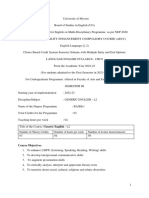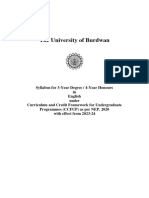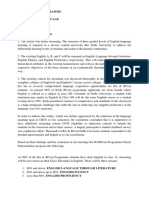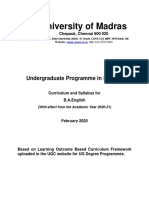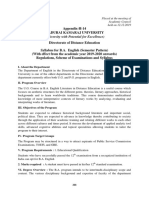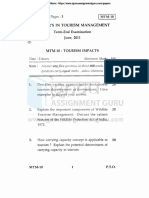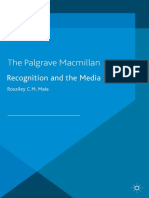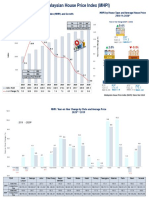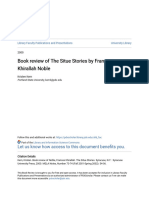0% found this document useful (0 votes)
45 views28 pagesCS Course File
The document outlines the course details for 'Cultural Studies' at Manav Rachna International Institute, including the course coordinator, structure, and assessment methods. It includes the program's vision, mission, and educational objectives, along with a detailed syllabus covering various aspects of cultural studies such as folklore, gender, media, and cultural conservation. Additionally, it provides information on faculty members, course outcomes, and suggested readings.
Uploaded by
ipshitanath.smehCopyright
© © All Rights Reserved
We take content rights seriously. If you suspect this is your content, claim it here.
Available Formats
Download as PDF, TXT or read online on Scribd
0% found this document useful (0 votes)
45 views28 pagesCS Course File
The document outlines the course details for 'Cultural Studies' at Manav Rachna International Institute, including the course coordinator, structure, and assessment methods. It includes the program's vision, mission, and educational objectives, along with a detailed syllabus covering various aspects of cultural studies such as folklore, gender, media, and cultural conservation. Additionally, it provides information on faculty members, course outcomes, and suggested readings.
Uploaded by
ipshitanath.smehCopyright
© © All Rights Reserved
We take content rights seriously. If you suspect this is your content, claim it here.
Available Formats
Download as PDF, TXT or read online on Scribd
/ 28













